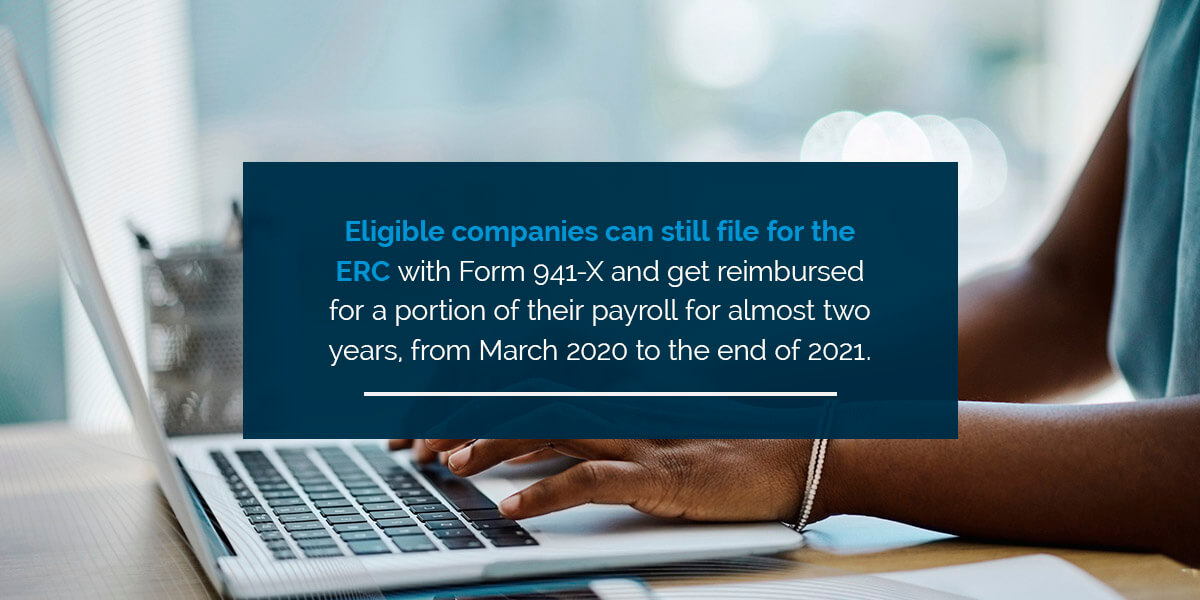
The Employee Retention Tax Credit (ERC or ERTC) is a tax credit that the United States government introduced as part of the Coronavirus Aid, Relief and Economic Security (CARES) Act. The ERC was meant to help businesses across the country that were feeling the negative impacts of the COVID-19 pandemic.
Eligible companies are still able to file for the ERC if they have not yet done so. However, it is important to note that scammers have gotten particularly savvy with ERC scams, and you should be wary of promotions marketing the tax credit. You can work with a tax attorney to help you navigate filing for the employee retention credit properly.
Thousands of businesses were boggled down by the unknown in the first months of the COVID-19 pandemic. Just under 20 million people had the misfortune of losing their income due to the untimely economic impacts that the virus had on businesses and organizations.
That’s why the U.S. government created COVID-19-Related Employee Retention Credits to provide a small financial cushion to small and medium-sized businesses (SMBs) struggling in the midst of all the global shutdowns and panic. This refundable tax credit was intended to help companies keep their staff on payroll throughout those months of uncertainty and lessen the financial blow of the changing social landscape.
When enacted, the ERC was set to help businesses over the period of mid-March through all of December 2020. Upon further consideration, as the pandemic loomed over the next few years, the U.S. government implemented some key updates under the Consolidated Appropriations Act of 2021. You should be aware of these updates if you are considering filing for the tax credit retroactively. They extended the time frame for companies that meet eligibility requirements and can now get the credit for business operations through January 1, 2022 — a huge win for small businesses.

This unique tax credit is no longer active, but, as previously mentioned, eligible companies can still file for the ERC with Form 941-X and get reimbursed for a portion of their payroll for almost two years, from March 2020 to the end of 2021.
The ERC is a refundable tax credit. With an ERC, the government will shell out the difference between the value of the credit and the taxes you owe. For example, if a business owes $1,000 in taxes but also qualifies for a $1,200 refundable credit, they would walk away with a $200 refund.
It’s relatively straightforward to apply for the employee retention credit, though you can make the process easier with the assistance of an experienced tax attorney. We can assist you with the online application that determines whether or not you qualify for the tax credit. Once approved, your business can claim your tax credit and the Internal Revenue Service (IRS) will disperse it.
The ERC has allowed businesses to be more flexible during the unprecedented time when so many people, unfortunately, lost work. The rolling out of the ERC has provided companies and tax-exempt organizations with the stability to endure the pandemic and keep giving back to their staffers.

Some of the key benefits and incentives of the ERC for employers include the following:
The ERC helps companies cover the cost of qualified wages paid solely for the workers that were not providing a service because the business was not operating at its full capacity – the credit does not count toward wages paid during normal operations, even if they took place between the eligible dates. This is an important distinction.
Qualified wages for the ERC include any health care plan expenses that you paid for your workers as well! With that in mind, your business may be able to file for the ERC if the following is true:
The size of your company and how many people work for you will also influence the size of the refund you are eligible for. A tax professional can help you better understand your eligibility and what refunds you are entitled to.
Unfortunately, there are some set-in-stone limitations to be aware of regarding your company’s ERTC eligibility, including the following:

If you are looking for more insight and guidance on the Employee Retention Credit, turn to the tax professionals at Poltson Tax. We can help you file for this tax credit and assist with any of your small business tax accounting needs.
Our law firm is dedicated to solving taxation-related problems. The Polston staff understands how to navigate the complicated tax questions you have as an entrepreneur.
Are you ready to get started? Contact Polston Tax Resolution & Accounting to learn more about how we can reduce the burden of taxes on your small business.